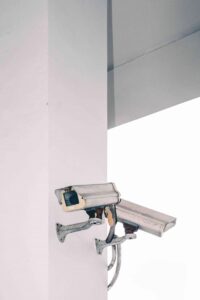
If you have been charged with a misdemeanor offense in Illinois, the court will likely offer you supervision as a sentencing option. Supervision is essentially a deferred dismissal of the charge. When the designated supervision period is complete, the case is finalized, no criminal conviction occurs and there is the possibility that the person charged will be able to expunge and remove the charge from their record.
Is Supervision Always a Good Option for Defendants?
Supervision is a sentencing option available for those charged with a misdemeanor in Illinois. If you have been charged with one of the following misdemeanors, however, supervision is not an option:
- Obstructing justice
- Second-time DUI offenses
- Domestic battery
- Driving with a revoked license
With a supervision sentence, the defendant does plead guilty but avoids a formal criminal conviction. In most cases, the court will expunge the incident after the supervisory period ends, a process which totally erases the plea from the defendant’s record. If the charge involves a DUI or traffic-related incident, however, the court will not expunge it.
Supervision might seem like an excellent option, but it is wise to examine the possible negative consequences of court-ordered supervision in light of a recent Seventh Circuit case.
Aldaco v. RentGrow, Inc.
Aldaco v. RentGrow, Inc., No. 18-1932 (7th Cir.) specifically addresses the issue of Illinois court supervision. In this case, plaintiff Rafaela Aldaco entered a guilty plea to a battery in 1996. The Illinois court sentenced her to a six-month supervision. After Aldaco served her sentence, the court dismissed the charge of battery but did not expunge her record. When she applied to rent an apartment, the potential landlord found Aldaco’s battery record in a background check and as a result, refused to rent to Aldaco.
Aldaco sued, arguing that the Federal Credit Reporting Act (FCRA) prohibits the disclosure of arrest records that are more than seven years old. The FCRA does, however, allow background check companies to report criminal convictions no matter how long ago they took place. Seventh Circuit Judge Easterbrook ruled on the issue of whether a sentence of court supervision in Illinois constitutes a “conviction” under the (FCRA).
Did Aldaco’s Illinois Supervision Sentence Constitute a Criminal Conviction?
The Seventh Circuit ruled that federal, not state law defines the nature of a “conviction.” Additionally, it ruled that under federal law, court-ordered supervision which is a guilty plea without a conviction is considered a conviction under the FCRA. Thus, the background reporting agency did not violate the FCRA by reporting Aldaco’s battery record to the potential landlord.
The Aldaco case demonstrates that if you fail to petition the Illinois court expunge your record after you serve your supervision sentence, a background check agency may legally report your guilty plea to a potential employer or landlord because it is now considered a conviction under the FCRA.
Let Our Experienced Criminal Defense Attorneys Help You Decide Whether Supervision is a Wise Option
If you have been charged with a crime, you need a skilled and experienced Illinois criminal defense attorney who will analyze the facts in your case and advise you as to your options in terms of sentencing. Let us represent you and fight to achieve the best possible outcome in your case. Do you need a criminal defense attorney in Cook, Lake, Kane, McHenry or Dupage county? Contact Glasgow & Olsson today to set up your consultation.
(image courtesy of Victor Garcia)



